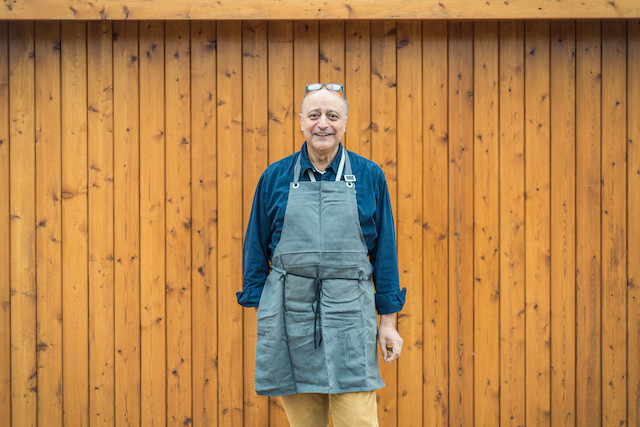Now the British-Canadian national is importing the concept of Sikh community kitchens, or “Langars”, to Luxembourg by coordinating free meals to encourage “sharing, participation and togetherness”.
“Anyone who wants to come together and sit with us and eat in peace and share ideas, we will do it,” he explains. Madhur, who moved to Luxembourg in 2011 and works as an external consultant, has been a lifelong fan of cooking. He says: “It’s very much a part of my cultures to invite people in. The first thing you say is ‘Sit down. What would you like to eat?’”
Madhur has a good selection of spices and enjoys cooking for friends who, he jokes, like to tell him how he can improve. But his culinary skills were turned to a different purpose when he hosted his first Langar in August 2019 for volunteers at the Aërdscheff, a sustainable construction project organised by Cell in Redange-sur-Attert.
“It was for volunteers who, in my mind, were doing a very noble thing by volunteering their time to work in the circular economy,” he says. “We were invited to celebrate their final dinner. They had all the facilities and were more than willing to help cook the stuff.” At this inaugural Langar, Madhur, whose family originates from India, cooked dishes using lentils, rice and vegetables with blended spices. But he says a Langar meal can consist of anything. The essential ingredients are the selfless act of contributing, sharing tasks and eating together.
The Langar practice is thought to have been started by Guru Nanak, who was born in 1469 in Talwandi near Lahore. He reportedly introduced the concept to encourage equality among all people regardless of religion, cast, creed, age, gender or social status. The Sikh diaspora has since helped to spread the tradition around the world. “The difference between what I’m trying to do versus my father was that his generation was interested in collecting money, buying land and building temples,” Madhur says. “My push is to make it more open and go out.”
Madhur has a rich experience of expat life--he grew up in Kenya and has lived in the UK, Canada, US, France and Middle East. And he sees multicultural Luxembourg as an ideal place to establish a secular version of the Langar tradition. “As an immigrant, one becomes very conscious of the fact that one does not look, sound or even smell like the locals. As such, there is a tendency to shrink back into one’s enclaves and comfort zones and cultivate mistrust,” he says. “I think that rather than creating religious fortresses, the time has come to say that we are here as your neighbours and want to share an important part of what we value, wherever we go in the world.”
To be able to prepare a Langar, Madhur needs a location with cooking facilities and people willing to pitch in. He plans to coordinate four Langars per year, for groups of up to 50 people and he hopes to encourage others to embrace the concept. “I’m now trying to encourage friends of every walk of life to take the idea of a Langar and do it for their friends,” he says, adding: “We all have to eat. It’s nice to share your food.”
Anyone wishing to invite Madhur to organise a Langar or to host their own can contact him by emailing [email protected].
